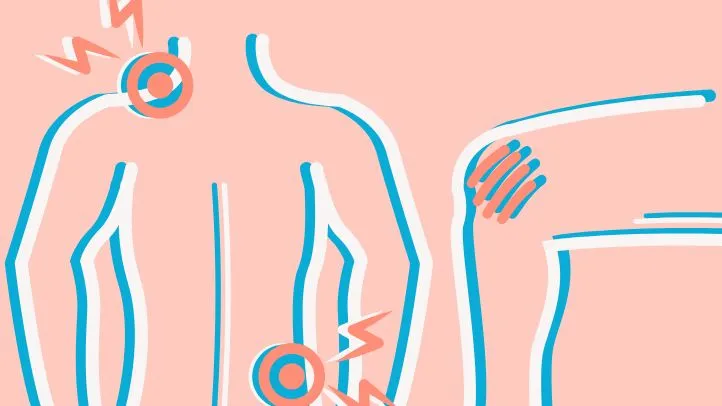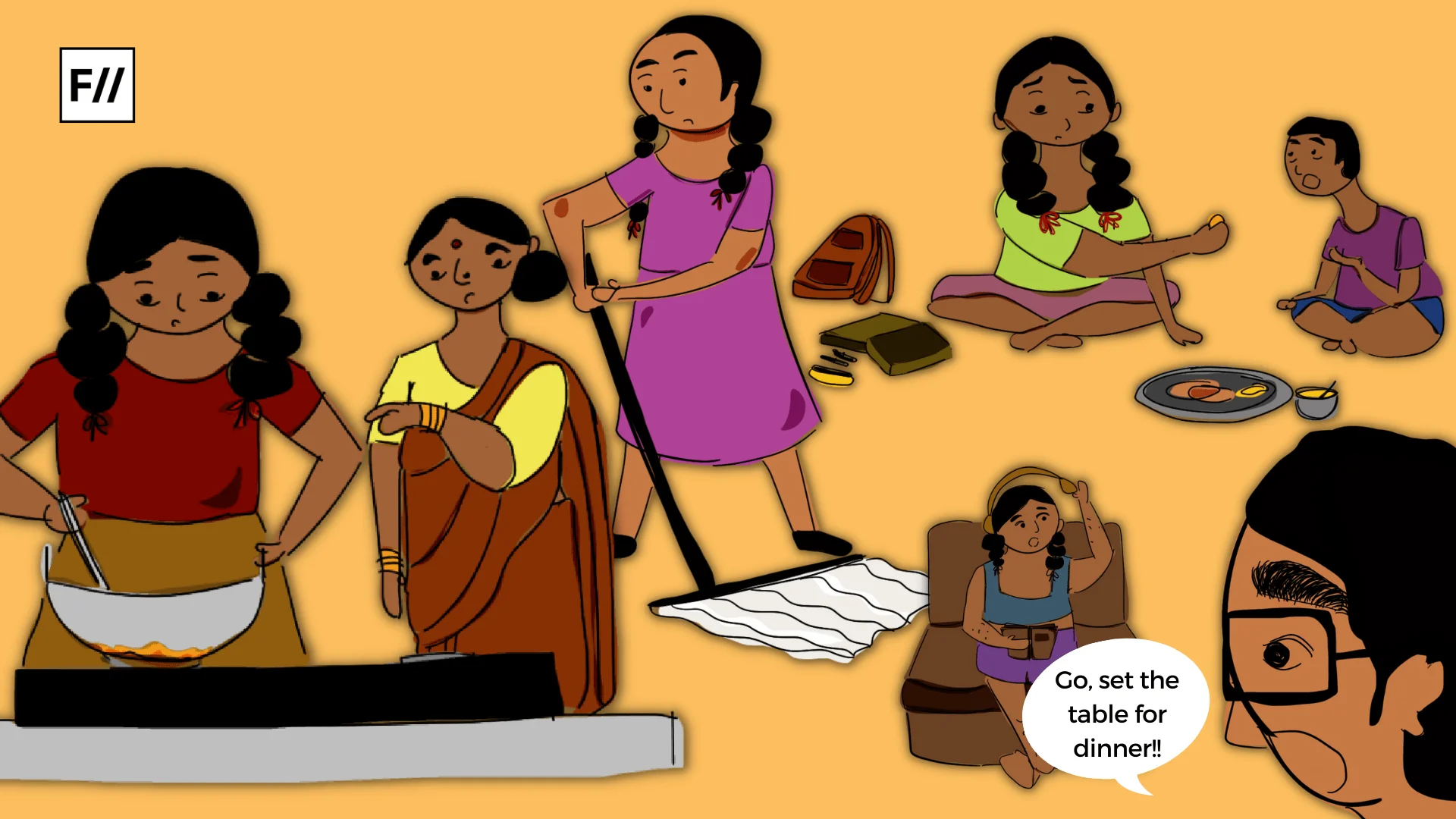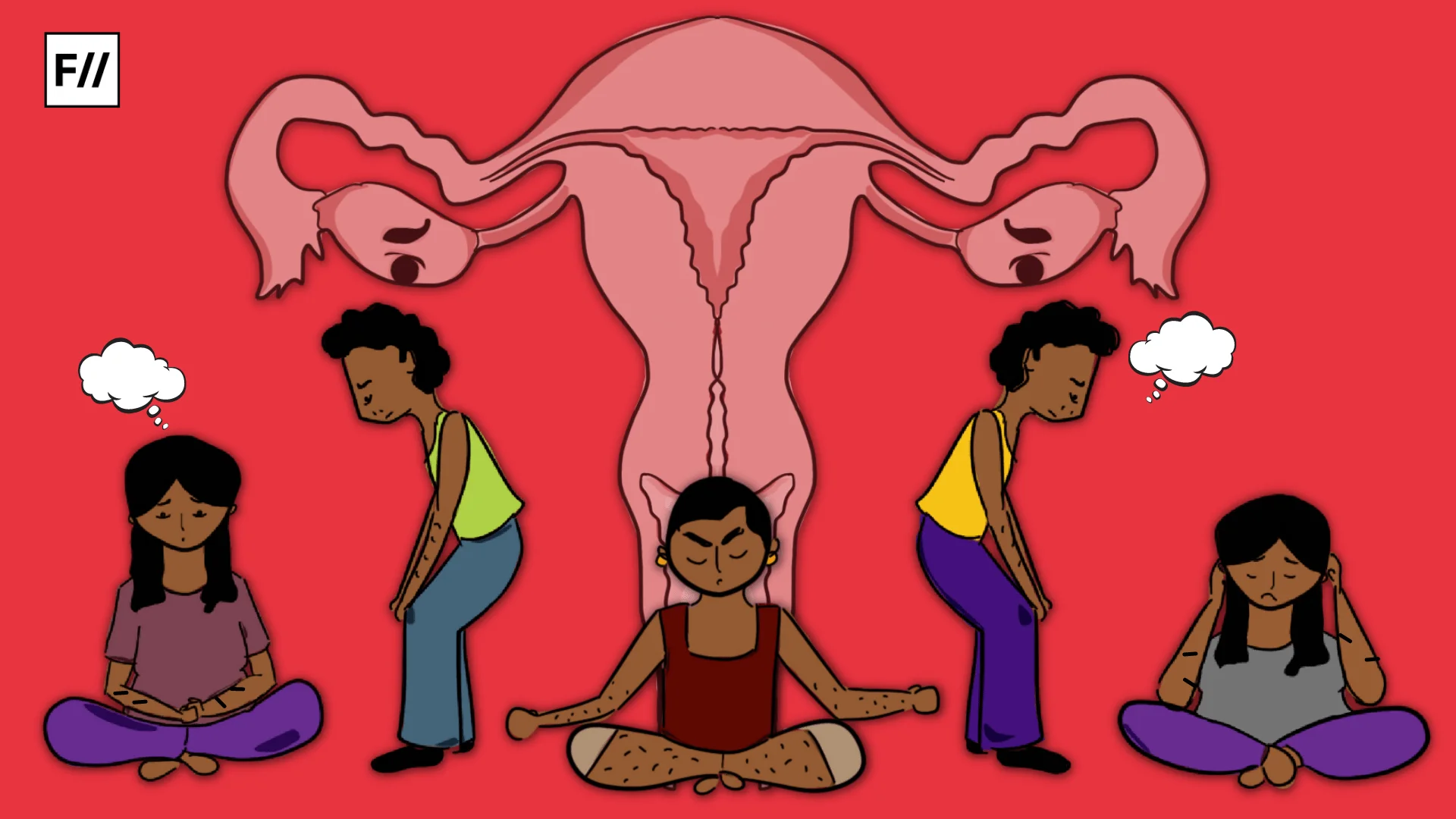Health and healthcare are rarely understood through a gendered lens. Of course, healthcare providers take into account biological differences when understanding and treating illnesses; however, while biological sex features considerably in health discourse, gender largely remains absent. Gender and socio-cultural realities impact various aspects of health, and a recent revelation by Indian rheumatologists brought this into sharp focus. At IRACON 2025, the annual conference of the Indian Rheumatology Association, doctors noted that women were significantly more likely to be diagnosed with autoimmune diseases. Several medical experts present at the event revealed that in their practice, they noticed nearly 7 out of 10 people who sought care for autoimmune diseases were women. Which is to say, nearly 70 per cent of those living with autoimmune diseases in India are women.
Autoimmune diseases are conditions where the body’s immune system attacks the body and its healthy tissues, leading to disruptions in the functioning of affected organs. When our bodies detect an intruder, such as harmful bacteria or viruses, they mount an immune response to address this. In people with autoimmune diseases, the immune system is overly active, and in the absence of harmful invaders to attack, it attacks and damages healthy tissue. However, why exactly autoimmune diseases occur is not fully understood.
There are over a hundred autoimmune diseases that can affect various parts of the body and organ systems. Some of the most well-known autoimmune diseases are rheumatoid arthritis, psoriasis, vitiligo, type 1 diabetes, and Hashimoto’s thyroiditis. Autoimmune diseases are chronic conditions; they are not curable but can be managed with treatment. While there is no cure, it is crucial to seek timely medical attention and treatment because not doing so might, in some cases, prove fatal, and in others, can severely affect health and quality of life, and lead to disabilities.
Beyond biology
It is widely believed that women’s biology plays a critical role in making them more susceptible to autoimmune diseases. While no definite cause has been identified to explain this gender disparity, research over the years has identified various potential biological factors, such as sex hormones, elevated immune response in women, increased antibodies, and the X chromosome, all of which might be the likely cause of women’s increased burden for autoimmunity. Outside of this, genetics play a role, too. People who have family members diagnosed with an autoimmune disease are more likely to develop one themselves, but genetics alone doesn’t determine if someone will develop autoimmune diseases.

Women are more likely to develop an autoimmune disease than men, and this holds true across the globe. This is not a phenomenon unique to India, and biology is undoubtedly a critical factor in making them vulnerable to autoimmune diseases. Speaking to FII, Dr Amit Goel, an endocrinologist practising in Hyderabad, said, ‘Conventionally, women are 3 to 4 times more prone to developing autoimmune disorders than men; this is basically because of their chromosomes.’
However, at least in the Indian context, social and environmental factors that contribute to health neglect among women, poorer overall health status, and delayed medical interventions are worth exploring. While they may not contribute to developing autoimmune diseases, they play a crucial role in determining the progress of the disease and quality of life.
In the Indian context, social and environmental factors that contribute to health neglect among women, poorer overall health status, and delayed medical interventions are worth exploring. While they may not contribute to developing autoimmune diseases, they play a crucial role in determining the progress of the disease and quality of life.
Rheumatologists at IRACON 2025 had also highlighted these often-overlooked aspects. It was noted that women are more likely to delay seeking medical care, despite persistent symptoms, allowing the disease to progress to a point of damaging their organs and joints. Family and care responsibilities, lack of awareness, and other social reasons were noted as contributing to these delays. Stress and nutritional deficiencies among women are significant contributing causes, too.
Dr Bimlesh Dhar Pandey, who was the organising secretary of IRACON 2025 and is the Director of Rheumatology at Fortis Hospital, was quoted in the media saying, ‘Every week, I meet women who have been living with unexplained joint pain or swelling for years before getting diagnosed. Many are in their 30s or 40s, juggling family and work. By the time they reach us, the disease has already damaged their joints or organs. We must increase awareness and ensure early screening, especially among women.’
Health neglect among Indian women and autoimmune diseases
Health neglect among women is, unfortunately, common in India. A complex interplay of socio-cultural and institutional reasons underlies this. On the one hand, domestic and caregiving demands can lead to women neglecting their health to prioritise these duties because women are conditioned to view such sacrifices as the norm. On the other hand, institutional issues like a lack of public awareness regarding women’s health, limited gendered research and policy interventions, and issues of accessibility can contribute to such neglect.
Regarding health neglect among women, Dr Goel noted, ‘Women in the subcontinent are much busier in the household sphere, and they tend to neglect symptoms until the disease has progressed. Further, in rural settings, health connect is lower than in urban areas, and this is another reason [for delays in seeking medical attention].’
Stress is also noted as a contributor to developing autoimmune diseases. When women work outside the home, the dual burden of managing work along with unpaid domestic work falls on them, leading to increased stress. Even when women don’t work outside the home, domestic work and caregiving responsibilities are relentless, with no days off and offering little time for rest. Women receive less rest and less sleep than men due to this, which worsens stress.
Further, since women are expected to be the sole managers of the household, the functioning of the household is contingent on their relentless, invisible labour. Households often grind to a standstill in the absence of this labour, so women are then expected to prioritise these duties over their health. The role of patriarchy is not limited to such expectations from women, either. Patriarchy plays an insidious role in poorer health outcomes for women and in determining their healthcare choices.
A study based in rural Telangana found that only 34.5 per cent of study participants sought medical attention when symptoms first presented. While 65.5 percent of women said they could make their own healthcare decisions, 42 per cent of the 200 respondents required permission from a family member before accessing healthcare services. Another 35 per cent said they had inhibitions in discussing their health with their families.
Dr Rohini Handa, who is a senior consultant at Indraprastha Apollo Hospital, said, ‘When 70% of those affected are women, we can’t treat it as a gender-neutral issue. There is a strong need for awareness campaigns, women-specific research, and better access to rheumatology services across India.’
Another study that looked at the impact of the pandemic on rural women in three Gujarat districts found gender disparities in how families responded to men being diagnosed with COVID-19, as opposed to women. Instances of women being expected to care for ill spouses or family members but not receiving care when sick themselves were noted. Women were also sometimes denied treatment by families and were instead asked to rely on home remedies.
Patriarchy contributes significantly to women’s health neglect. Lack of autonomy and patriarchal notions that value women solely for their usefulness to their families result in women’s health needs being sidelined and treated as less significant than those of men. Health neglect, then, becomes not just inevitable but the norm.
Gendered perspectives in healthcare and autoimmune diseases
When these socio-cultural factors combine with institutional issues like unaffordable health care costs; lack of access to specialised healthcare services and specialists; and lack of childcare, paid leave in the case of wage labourers, and adequate nutrition and rest, the issue of delayed healthcare seeking by women is exacerbated.
A 2020 study regarding gender differences in healthcare utilisation in six Indian states found that men were more likely to look for better healthcare services than women, prioritising quality of care over physical proximity to hospitals. Women, on the other hand, were more likely to choose healthcare facilities based on proximity, and consequently, were less likely to be satisfied by the care they received.
Another study by AIIMS Delhi found that women face difficulties in accessing the top-tier institutions in India’s public healthcare system. Tertiary healthcare institutions like AIIMS are the ones that provide specialised care and access to specialists. It is no wonder, then, that autoimmune diseases, which require specialised care from rheumatologists, are diagnosed late in women. The study also found that proximity determined whether women would return to healthcare facilities to seek care. The farther women lived from the hospital, the less likely they were to return. Which is to say, families are less likely to bring women to tertiary hospitals like AIIMS if they have to spend money on travelling.
Given such data, omitting gendered perspectives in understanding health and healthcare seeking is a disservice to millions of Indian women. Dr Rohini Handa, who is a senior consultant at Indraprastha Apollo Hospital, said at IRACON 2025, ‘When 70% of those affected are women, we can’t treat it as a gender-neutral issue. There is a strong need for awareness campaigns, women-specific research, and better access to rheumatology services across India.’
A gendered perspective, both at the medical research and policy level, is important to effectively address conditions that disproportionately impact women. Medical research focused on women and policy interventions and awareness initiatives aimed at women are crucial. Dr Goel’s recommendations included screening programmes for chronic disorders, especially in corporate settings, where stress and lifestyle factors can increase the risk for autoimmunity.
While gendered perspectives in healthcare and understanding autoimmunity through a gendered lens won’t reduce disease burden or alter the biological realities that make women more susceptible to autoimmune diseases, it can ensure that women don’t suffer for years before seeking medical care, and that care is sought as soon as symptoms present, not when the disease has progressed severely. With autoimmune diseases that are often incurable and can only be treated and managed with medical care, a gendered focus is further important because timely care can greatly improve quality of life by managing pain and other symptoms and preventing disability.
About the author(s)




